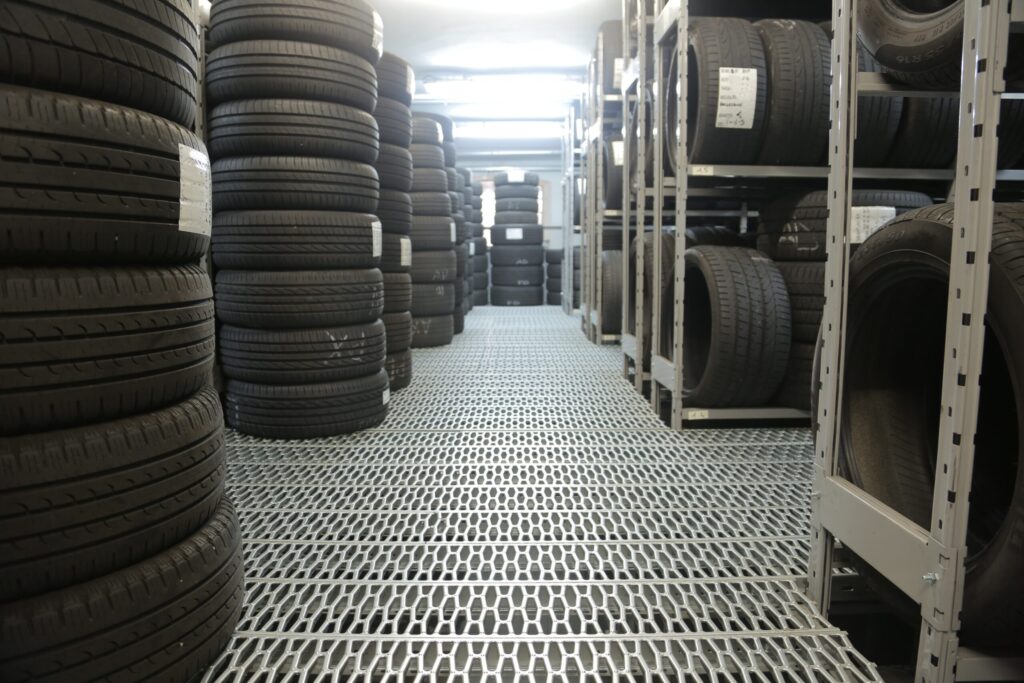Tires are an integral part of a car. Without tires, you can\’t drive your car. But, it is essential to note that the different types of tires serve a purpose. While the basic function remains the same, differences exist between the tires on various weather conditions, roads or surfaces, and performance.
Let\’s go through this guide to understand the different types of tires and their functionality.
Types Of Tires According To The Season
Some regions face extreme temperatures and weather conditions. Therefore, it becomes important to use tires accordingly. Here are the tires designed and manufactured for different weather conditions:
Winter Or Snow Tires
This type of tire is composed of highly natural rubber making it suitable for extremely cold temperatures under 7° centigrade and snow. Besides, the tread of these tires has deep and tiny grooves to provide a proper grip on snowy roads.
Summer Tires
When the temperature is higher than 7° centigrade, summer tires play an important role. The special soft compound makes summer tires grip on dry roads. Moreover, the treads of summer tires are resistant to water which means they are excellent at channeling water away.
All Season Tires
A combination of summer and winter tires make up all-season tires. These types of tires are functional in both summer and winter. However, the combination can compromise the tires\’ performance.
Some unique features of all-season tires are excellent grip in winter, agility in summer, and control on wet roads. These features make all-season tires best for conditions where the temperature isn\’t extremely hot or cold.
Types Of Tires For Different Terrains And Performance
Car owners equip their vehicles with different tire types when looking for high performance on different terrains. The following are some different types of tires for different terrains and performances:
Touring Tires
Many car enthusiasts like to go on long trips during weekends. While different tire types can help cover long distances, touring tires can provide a more comfortable ride plus better handling. Touring tires are exceptional at channeling water. Besides, these tires are best suited for wet and muddy roads.
Sports Tires
Some premium car models come with sports tires. These tires are manufactured from a soft rubber compound that enhances road grip and stability at higher speeds. However, these tires don\’t perform well on uneven surfaces and bumps due to inadequate shoulder height.
Off-Road Tires
Off-roading enthusiasts make basic modifications in their cars for better performance on tough off-road terrains. Moreover, these types of tires have large tread blocks to grip dirt and mud. However, these tires are not suitable for smooth surfaces and wear out more instantly.
All Terrain Tires
There are different types of roads and conditions. That said, all-terrain tires ensure a perfect grip on smoother surfaces resulting in a comfortable ride. They are more durable and last longer than normal tires.
Types Of Tires According To The Tubes Used
The following tire types are categorized according to the tubes used.
Tube Tires
It is the most common type of tire made up of synthetic rubber enclosing a tube in which high-pressure air is filled.
Tubeless Tires
Due to its benefits, tubeless tire usage has increased. The major advantage of tubeless tires is their better grip and this type of tire loses air very slowly.
Run Flat Tires
Although you can\’t drive when your tires go flat, running flat tires enable you to cover some extra miles at a certain speed to help you reach a repair shop.
This ends our guide to different types of tires. Ensure that you install a TPMS sensor with tires and keep reading our guides for more tips on tires.

Pingback: How To Choose The Right Type Of Tires For Your SUVs | porcsi
Pingback: Touring Tires Vs Performance Tires: All You Need To Know | porcsi